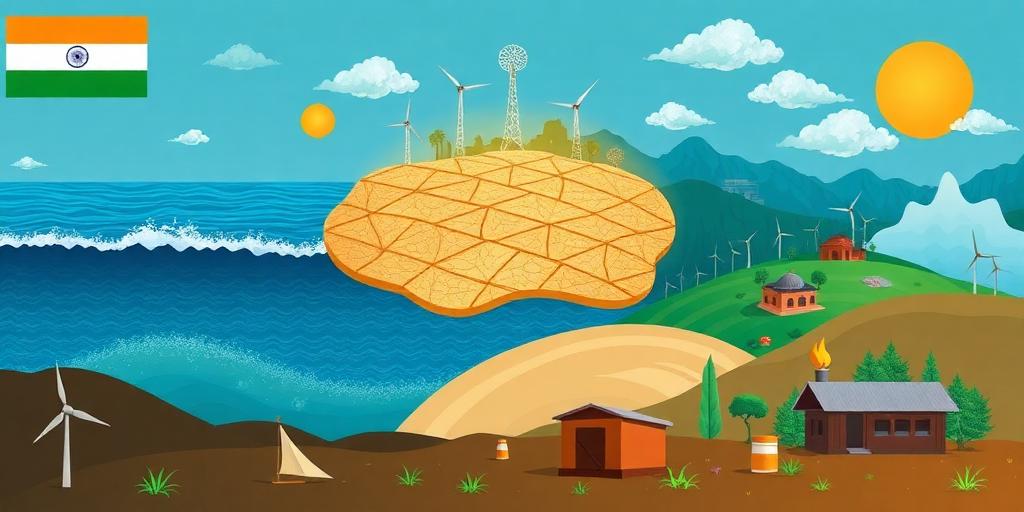Climate Change and Sarkari Yojana in 2025: A Policy Shift
By 2025, climate change has emerged as a central consideration in the formulation and implementation of Sarkari Yojana (Government Schemes) across India. This shift is driven by the escalating impacts of climate change—erratic monsoons, rising sea levels, and increased frequency of extreme weather events—which directly threaten the nation’s developmental goals and the well-being of its citizens.
The Imperative for Climate-Resilient Planning
Traditional Sarkari Yojana, designed with conventional assumptions about climate stability, now face the risk of obsolescence. Infrastructure projects are vulnerable to flooding and extreme heat, agricultural schemes are disrupted by unpredictable rainfall, and social welfare programs are strained by climate-induced migration. Recognizing these vulnerabilities, the government has begun integrating climate resilience into its policy framework.
Key Areas of Integration
- Agriculture and Water Resources: Schemes like the Pradhan Mantri Krishi Sinchayee Yojana (PMKSY) are being revamped to promote water-efficient irrigation techniques and drought-resistant crops. Subsidies are redirected towards farmers adopting sustainable agricultural practices. The Jal Jeevan Mission is prioritizing water conservation and groundwater recharge in water-stressed areas.
- Infrastructure Development: The Bharatmala Pariyojana and other infrastructure initiatives now incorporate climate risk assessments. Roads, bridges, and coastal infrastructure are designed to withstand extreme weather events and sea-level rise. Green building technologies and sustainable materials are encouraged to reduce the carbon footprint of construction projects.
- Energy Transition: The government's commitment to renewable energy is reflected in schemes like the Pradhan Mantri Kisan Urja Suraksha evam Utthan Mahabhiyan (PM-KUSUM) and the National Solar Mission. These initiatives promote solar energy adoption in agriculture and rural areas, reducing dependence on fossil fuels and enhancing energy security.
- Disaster Management: The National Disaster Management Authority (NDMA) is strengthening its capacity for climate risk assessment and early warning systems. Schemes like the National Cyclone Risk Mitigation Project (NCRMP) are enhancing coastal communities' resilience to cyclones and storm surges. Community-based disaster preparedness programs are being scaled up.
- Social Welfare and Livelihoods: The Mahatma Gandhi National Rural Employment Guarantee Act (MGNREGA) is increasingly focused on climate-resilient works, such as afforestation, water conservation, and soil erosion control. Skill development programs are tailored to green jobs in renewable energy, sustainable agriculture, and climate-resilient infrastructure.
Challenges and Opportunities
Despite progress, challenges remain in mainstreaming climate considerations across all Sarkari Yojana. These include:
- Data and Information Gaps: Accurate and localized climate data are essential for effective planning. Investments in climate research and monitoring are needed to fill existing data gaps.
- Coordination and Convergence: Effective climate action requires coordination across various government departments and agencies. Convergence of different schemes and programs can enhance their impact.
- Capacity Building: Training and awareness programs are needed to build the capacity of government officials, local communities, and other stakeholders to implement climate-resilient schemes.
- Financial Resources: Adequate financial resources are crucial for implementing climate-resilient projects. Innovative financing mechanisms, such as green bonds and climate funds, can help mobilize additional resources.
Conclusion
In 2025, climate change has become an integral part of Sarkari Yojana in India. By integrating climate resilience into its policies and programs, the government aims to protect its citizens, promote sustainable development, and build a climate-resilient nation. Addressing the challenges and seizing the opportunities will be crucial for achieving these goals and ensuring a sustainable future for all.









